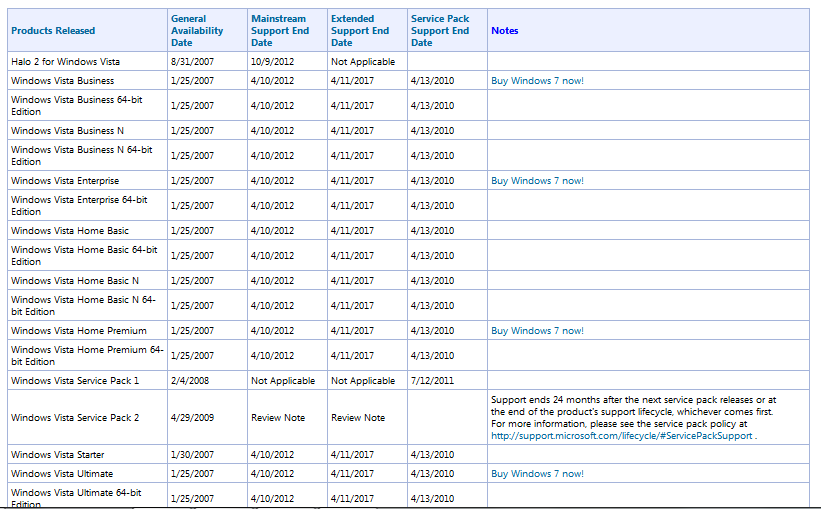It's the end of mainstream support for Windows Vista

On April 10, 2012 -- a k a, tomorrow -- Windows Vista's period of free, Microsoft-provided mainstream support comes to an end.
What's that mean to users still running one of Microsoft's least publicly popular versions of Windows?
If you ask Microsoft, officials there will likely tell you that the end of mainstream support means it's the ideal time to upgrade to Windows 7. But in reality, there are still a number of years left -- five, to be exact -- before Extended Support for Vista ends. That date is April 11, 2017, for all versions of Vista.
Microsoft's Product Lifecycle table for Vista spells this all out for the various versions of Vista:
(click on the table above to enlarge)
Mainstream support is the period during which Microsoft provides free and regular updates including both security fixes and other patches for a product. Once a product exits the mainstream support phase, it enters Extended Support. During this period, security updates for a product remain free, but most other updates are only supplied on a paid basis, and require a separate Hotfix Agreement.
Interestingly, Windows XP, which Microsoft introduced in 2001 (six years before it launched Vista), doesn't exit the Extended Support phase until 2014 (for XP with Service Pack 3). But XP still has considerably more market share than Vista.
As Computerworld noted, Microsoft also is moving Office 2007 into the Extended Support phase this week (today, April 9, to be precise).
Update (April 11): Office 2007 Mainstream support has been extended and now will end in October 2012.
In February, Microsoft quietly updated its Product Lifecycle rules to extend support for the Consumer versions of Vista and Windows 7 to 10 years (five mainstream, five extended), the same amount of time that Business versions of Windows are supported.
